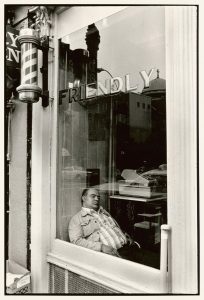In “The Lifeguard,” Mary Morris writes in past tense from the perspective of an older man, Josh Michaels, who details the year he was head lifeguard at his local beach. One of the main elements of the story is the dichotomy of past and present, shown in where each of the characters seems to focus. Interestingly, though, Josh describes himself as being unaffected by the passage of time at that point in his life, saying,
“I had seen Ric Spencer, who had ruled this beach before me for half a decade, lose his hair, and I’d seen the slim bodies of women stretch with childbearing. I’d seen it all and it had not impressed me, but rather it flowed through me like a river, not stopping here.”
Most of the characters that surround Josh are trapped in the past in different ways. One example is Ric Spencer, the previous head lifeguard. Ric, who is now married with a daughter, spends most of his time with Josh instead of his family, finding the most pleasure not in watching his daughter play on the beach but in reliving his glory days. Ric was the lifeguard on duty when a local boy named Billy Mandel drowned, the only recorded drowning to take place at that beach. Ric retells the story of the drowning over and over, embellishing it until it’s about his own heroism and not the tragedy of the drowning. Ric’s obsession with the past is evidenced in his jealousy of Josh and longing for the days when he used to be like Josh. He continuously makes remarks aimed at making Josh understand that these days of youth and beauty won’t last, saying,
“[Ric] was only twenty-six that summer when I became head lifeguard, but he used to say, as bronzed girls handed me Cokes or asked if I needed more oil on my back, ‘Man, you don’t know what it is. You don’t know what you’ve got.’”
Also on the beach is the Mandel family, including Peggy, Billy’s younger sister. The entire Mandel family is trapped in the past as well, traumatized by Billy’s drowning. Peggy is trapped by her overprotective parents, as well as by Josh, who takes her on a date only to ask her what Billy was like. Peggy’s parents, Mr. and Mrs. Mandel, are trapped by their own doing: both are so afraid of Peggy drowning that, when they take her to the beach they spend their time being paranoid that something will happen instead of enjoying the day with their daughter.
“Peggy, who was a sophomore and known to be fast, used to shout at her parents, who sat motionless, reading endless newspapers unless Peggy went for a swim. And then Mr. Mandel would stand in his sneakers, waves lapping at his feet, as if somehow, through his attentiveness, he could bring back what was gone.”
Only one character is fully in the present: Mrs. Lovenheim. Other characters seem washed out and aged, but descriptions of her character paint her as someone unfading. When Ric talks about how she was when she was young, Josh thinks that he
“… couldn’t imagine that anyone could have known her ‘when,’ whenever that was.”
Though to the characters Mrs. Lovenheim appears to be just as trapped in the past as they are—stuck on the man who dumped her, her routine never changes; each day when she pulls out her book on the beach, she flips to the same page as though she’s frozen in time—she actually spends her beach days watching Josh. Josh, youthful and admired, seems to represent the present. Though other characters interact with Josh in different ways, most do so only because they want something from him: Ric wants to relive his time as a lifeguard and the girls want to date him. Mrs. Lovenheim, though, is actually paying attention to Josh, which is why she’s the one who saves little Becky from choking on the grape. She’s the only one who is paying attention to what’s happening now.
Later, when Josh shows up at her door, she explains that she’d taken classes, and that’s how she knew what to do when Becky was choking. This is the only evidence of any character in the story changing; Josh, Ric, and the Mendels are flat and static in their own ways, but by taking classes, Mrs. Lovenheim exhibits character development. She’s moved on from the past in order to be fully in the present. In a way, Josh recognizes this, and wants to be with her because he knows that soon he will become as washed-out as Ric and the others.



